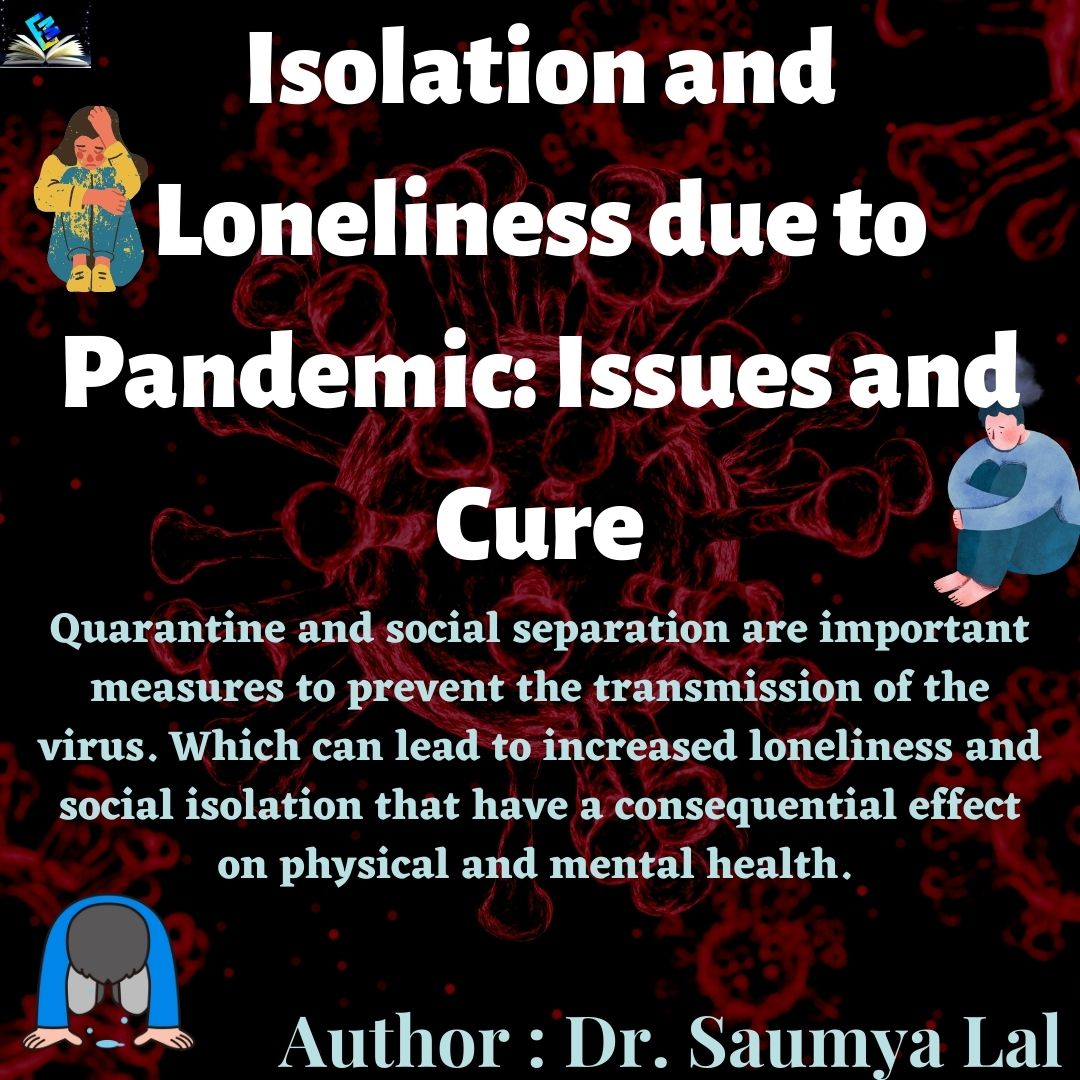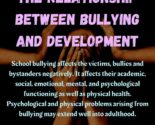
Isolation and Loneliness due to Pandemic: Issues and Cure
Quarantine and social separation are important measures to prevent the transmission of the virus. Which can lead to increased loneliness and social isolation that have a consequential effect on physical and mental health.
Author: Dr. Saumya Lal
Introduction
The pandemic COVID-19 has led to the introduction of unprecedented measures of “social separation” essential to restrict the transmission of the virus. Apart from quarantine and isolation for people exposed to or afflicted with Covid-19; the social distance among the general public has been implemented to limit COVID-19 transmission. Feeling isolated not only affects our emotional well-being. It also affects our physical health, which can lead to heart disease, hypertension and sleep difficulties.
Impact on Senior Citizens
Nevertheless, with the health experts, these problems generally are controlled. COVID-19 has caused worry, stress and social isolation impacting health since the start of the epidemic. The required quarantine and social distancing measures for COVID-19 are nevertheless quite expensive. Especially for older individuals; who have a profound sense of social isolation and loneliness with potentially catastrophic repercussions for physical and mental health. For people who have pre-existing mental health; who frequently suffer from loneliness and social isolation before the increased social distance enforced by the COVID-19 public health initiatives; the impact may be exaggerated disproportionately.
Older individuals are more prone to social isolation and solitude since they are dependent functionally on family-members or community help. It is important to bear in mind that social separation does not mean social break-outs; even though strong social constraints are essential to avoid spreading COVID-19.
The goal is to discuss the nature of loneliness and social isolation among elderly people. Their health effects and strategies of dealing with the pandemic of COVID 19.
Solitude and social isolation often occur together and among elderly individuals are all too prevalent. While loneliness relates to subjective experiences, the amount and frequency of one’s social contacts define social isolation. Loneliness is described as a generic term as the sensation of being alone. Whereas social isolation represents an objective status of the social and interactional surroundings of the individual. Studies indicate that while loneliness and social isolation are not the same, both can have a negative influence on health in common and diverse ways.
Ways to overcome
There are defined techniques of keeping sentiments of being linked to people yet social distance needs to be maintained. We might be more resistant to the start of emotions of solitude by planning our activities every day. As follows, some tips.
Maintain connections
Talk to your family for extra time. Take advantage of the pandemic chances. Some family members may have been distracted by responsibilities to work and school before the epidemic. But they may now have more time at home and greater flexibility to communicate with their elder relatives. In an era of social distance, quality connections with the use of personal protection equipment such as masks, with a physical distance of at least two meters, allow for contact with families. This is essential to protect against solitude.
Maintain technological social links.
Together with the telephone, technology has revolutionised how people interact. Social media platforms allow individuals to remain connected in many ways. However, many elderly people may not be so comfortable with this modern technology. Also this kind of communication can not help them to overcome their emotional needs. It is possible to help ageing families and friends overcome these technological obstacles. Online video chat is easy to use and provides adequate nonverbal information to make individuals more committed.
Keep fundamental requirements and activities healthy
Ensuring fulfilment of fundamental requirements. Family caregivers, especially those living alone, are expected to guarantee access to food, medication and masks for older persons.
Structure your day
Staying indoors for long days is a psychological hardship for many. It is not simple to have a regular daily schedule when most outside activities are not available. However, we may promote and encourage involvement in activities that the elderly person finds enjoyable with physical, mental and spiritual well-being advantages. For elderly adults at risk of delirium, regular scheduling is particularly beneficial.
Keep up mental and physical activity
Exercise provides physical and mental health advantages (specifically for mood and cognition). There is proof that frequent participation in mental disabilities and new activities might minimise dementia risks. While we may not be able to practise in conjunction, at an individual level we should keep physical activity. Furthermore, such personal physical activities may be carried out at the group level through the establishment of a shared objective. Our progress or the establishment of a friendly social media rivalry.
Follow the direction of social distance to perform outdoor activities.
Short activities outside are typically still doable and healthy. Sunlight exposure and other people’s capacity to see while yet keeping physical distances allow you to feel considerably better.
Cognition, emotion and mood management.
Solitude is typically linked to negative thinking (cognitions). In addition, anxiety and sadness might lead to a social withdrawal which exacerbates social distance loneliness and isolation. Reliable pandemic knowledge helps to minimise needless worries and unpleasant ruminations. Conscious breathing, meditation and other relaxing practices benefiting the mind and the body, which can reduce anxiety and sadness. In this tough epidemic era, emotional support for family members and friends is very vital, but you should not hesitate to seek help.
Be careful with pathogens.
Please be careful. Every individual is highly stressful, and the major stress in certain people – particularly the susceptible elderly; can lead to the emergence or recurrence of mental illnesses. Depression, anxiety, and sleep trouble are prevalent in particular while you are in or out of quarantine. Other symptoms such as frequent washing and purification include wrath, impatience, and obsessive behaviour.
Be very careful with elderly people and dementia carers
Dementia is a general term for loss of memory, language, problem-solving and other thinking abilities that are severe enough to interfere with daily life.
COVID-19 epidemic has greatly affected the life of people all around the globe. These changes have been stressful. Dementia patients, however, have an adverse adaptive function and the epidemic might increase discomfort and lead to behavioural and mental health symptoms. Because the social distance of people with dementia is hard to understand and respect, caregivers should attempt to provide clear, straightforward, and understandable instructions in terms of hand cleanliness, social distancing and other protective activities.
Conclusion
There was a large and extremely difficult societal impact of the COVID-19 epidemic. Nothing is missing about the regular functioning of society. Quarantine and social separation are important measures to prevent the transmission of the virus. Which can lead to increased loneliness and social isolation that have a consequential effect on physical and mental health. Adoption of suitable actions towards maintaining social and family links, maintaining healthy activities and managing emotions. Also mental symptoms can contribute to alleviating detrimental impacts of solitude and isolation.
Mail us at edumoundofficial@gmail.com






